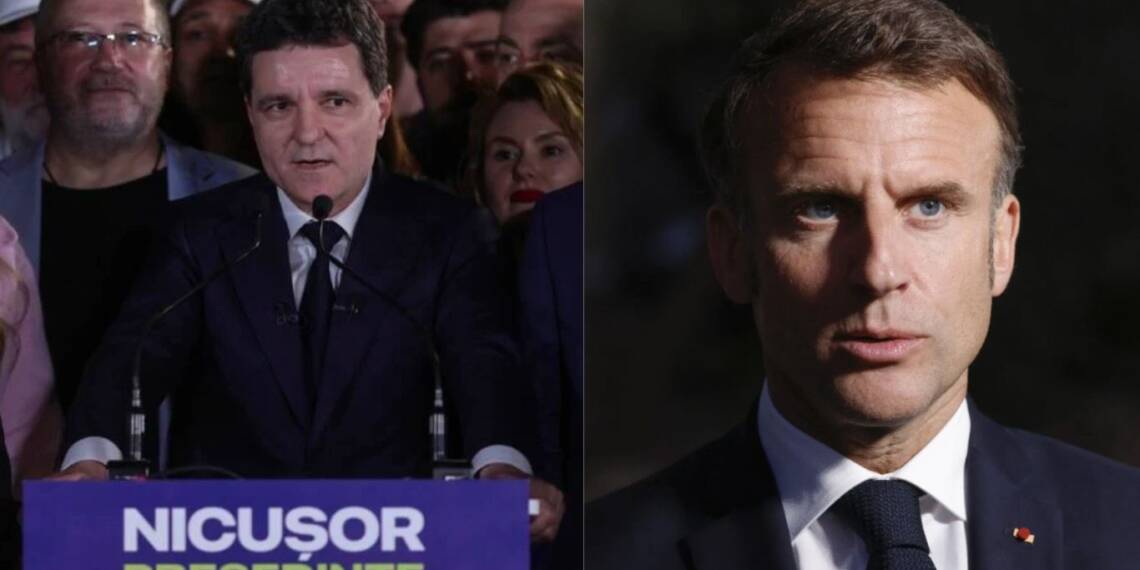Romania has elected centrist candidate Nicușor Dan as its new president in a historic vote marked by high turnout, public distrust, and rising international tensions. Dan, currently the Mayor of Bucharest and known for his pro-European Union (EU) stance, secured about 54% of the vote in the runoff held on Sunday, defeating nationalist candidate George Simion, who received 46%.
The closely contested Romanian election was widely seen as a battle between two visions for Romania: one favoring deeper integration with Western institutions like the EU and NATO, and another reflecting growing skepticism of foreign influence and advocating for a more independent national policy.
Simion, a conservative leader with strong nationalist support, campaigned on restoring national sovereignty and reducing what he called “excessive foreign interference” in Romania’s internal affairs — particularly from Brussels and Washington. He has also criticized Romania’s military support for Ukraine, arguing that it puts national interests at risk and needlessly drags the country into regional conflicts.
While mainstream European leaders celebrated Dan’s win, many Romanians — especially in rural areas — expressed concerns that Romania is losing its identity and being treated as a pawn in larger geopolitical games. Simion, despite his loss, maintained strong support among citizens who want a more neutral foreign policy and stronger ties with neighboring countries, including Russia.
Allegations of Interference and Media Suppression
Adding to the tensions, tech entrepreneur Pavel Durov, founder of Telegram, claimed on the day of the vote that a Western European government tried to pressure his company into silencing Romanian conservative voices online ahead of the election. He stopped short of naming the country, but hinted it was France by including a baguette emoji in his post.
Hours later, France’s Foreign Ministry issued a strong denial, calling the accusation “unfounded.” However, Durov doubled down, saying he had been approached personally by France’s foreign intelligence chief earlier this year in Paris.
Simion and his supporters pointed to these developments as evidence of Western pressure aimed at shaping Romania’s election outcome in favor of pro-EU forces. He also accused France of “spending money and exerting pressure” to influence the final result.
Adding to the controversy, the original round of voting held in December 2024 was annulled by Romania’s Constitutional Court, citing “electoral irregularities” and suspected “hybrid interference” linked to Russia. However, critics of the court’s decision argue that the annulment conveniently removed right-wing independent Calin Georgescu from the race — a candidate who had performed strongly and openly questioned NATO’s influence in Romania.
Georgescu was later barred from running again due to alleged procedural violations and what authorities called “anti-democratic” rhetoric. Simion, who had backed Georgescu, criticized the decision as politically motivated.
Russia, for its part, has denied any involvement in the Romanian elections. Some independent analysts suggest that accusations against Moscow have been used as a tool by Western governments and pro-EU factions to discredit legitimate opposition voices.
A Nation at a Crossroads
With Nicușor Dan now set to take office, Romania faces major decisions about its direction. Dan has promised to continue military support for Ukraine, strengthen ties with the EU and NATO, and crack down on corruption. But a large segment of the population remains wary of these policies, especially if they come at the expense of Romania’s economic independence or regional stability. Dan has called for a broad coalition government involving both center-left and center-right parties, hoping to build national unity. However, bridging the deep political and ideological divide may prove difficult.
While the West views Dan’s victory as a reaffirmation of democratic values, others see the election as part of a growing divide between elites in major cities and ordinary citizens who feel unheard and disillusioned.
The Romanian presidential election may have ended, but the debate over national sovereignty, foreign influence, and Romania’s role in the world is far from over.








